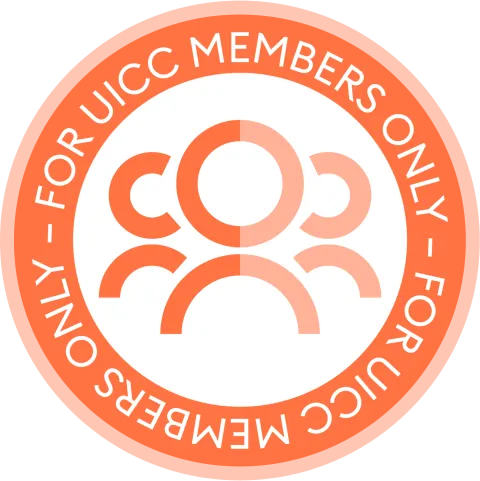Monday, 6 September 2021 - 02:00
Master course: Antimicrobial resistance and its impact on cancer care | UICC
Drug-resistant infections threaten decades of progress in cancer care. This dialogue explores how AMR endangers treatment outcomes—and why the cancer community must unite with global health actors to push for urgent action.
Antimicrobial resistance and its impact on cancer care
Overview
Over the last decades, there has been significant progress in cancer care, with key advances in surgery, radiotherapy and medicines, including new immunotherapy agents. More lives are being saved from cancer than ever before. However, this progress is at risk due to the significant and growing threat of drug-resistant bacteria. People with cancer are more susceptible to hospital-acquired infections due to the lowering of their immune defences. In particular, pneumonia and sepsis are among the most frequent causes of admission to intensive care units for cancer patients and it is estimated that 8.5% of cancer deaths are due to severe sepsis.
Antimicrobial resistance (AMR) is a growing public health issue that needs urgent attention around the world. Infections become drug-resistant when bacteria that cause them adapt and change over time, developing the ability to resist the drugs designed to kill them. The result is that many drugs – like antibiotics – are becoming less effective at treating illnesses. The overuse of antibiotics in both humans and animals is speeding up this process. Without effective antibiotics, routine surgery and life-saving treatments like chemotherapy, can become life-threatening. It is estimated that at least 700,000 people die each year from drug-resistant infections, and this is set to increase to 10 million by 2050 if we do not take action now.
The cancer community must join forces with other global health actors, such as those working in communicable diseases to push governments to act and prevent more patients dying from drug-resistant infections.
Learning objectives
At the end of this course, participants will:
- Improve their knowledge on AMR;
- Understand how AMR negatively impacts cancer care outcomes;
- Gain insights into the approaches used to tackle the global threat of AMR and potential solutions to address this threat.

Target audience
The course is designed for cancer advocates, representatives of cancer societies, patient groups, oncology professionals, cancer programme managers, the private sector and other stakeholders working in the field of cancer.
Delivery method
This course is delivered on the UICC's eLearning platform. Content for this course is divided in to four modules:
- Module one: What is AMR and why should the cancer community care.
- Module two: Influencing policy change with data and surveillance.
- Module three: Infection control and rational use of medicines.
- Module four: Access to antimicrobials and infectious disease diagnostics.
Each module is released at regular intervals during the course timeline. In order to access the next modules, participants must have completed all previous learning steps. A certificate of completion is available to all those who complete the course within the time period, including the evaluation survey.
Each learning module may include recorded presentations and lectures, podcasts, assessments (in the form of multiple-answer quizzes), assignments and/or discussion forum activities. Each module will require an estimated time committment of around 2 to 3 hours to be completed.
This course is delivered in English.
Application
Applications for this course are now closed. The course will be relaunched in 2022 as a self-guided course which can be accessed by all UICC members.
Event Information
Online course
1202 Geneva
Switzerland
Last update
Tuesday 26 August 2025